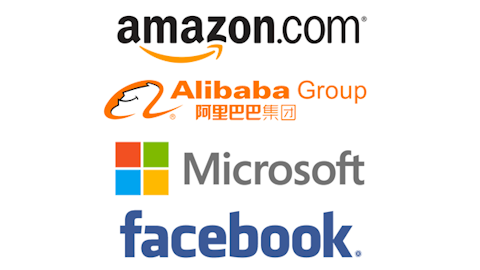Broyhill Asset Management, a boutique investment firm based in North Carolina, released its August 2019 Investor letter – a copy of which can be downloaded below. Established as a family office, the company invests with a long-term, objective, and rational perspective.
In the letter, President and Chief Investment Officer Christopher Pavese disclosed that in the past 6 months, Broyhill generated double-digit gains with lesser risk compared to global equity markets. The main contributors to the firm’s good performance were its investments in dollar stores. During the first half of 2019, Broyhill’s Dollar Tree (DLTR) and Dollar General (DG) shares advanced 26% and 19% respectively.
In order to work on new ideas, Broyhill closed out several positions. The company liquidated its investment in Oaktree (OAK) and exited core holdings in Ally Financial (ALLY) and CDK Global (CDK). Broyhill’s investments in AT&T (T) and Campbell Soup Co (CPB) became smaller as well. Read more about the firm’s portfolio review below.
“PORTFOLIO REVIEW
The Fed’s about-face on interest rates gave momentum stocks a fresh set of legs and drove growth stocks back toward record valuations. But there has also been a more subtle shift in the value landscape, which helped propel the robust returns within our equity portfolio.
This year’s gains have been broad based, and our largest positions provided the largest wins. Our investments in the dollar stores were our largest contributors to performance. Shares of Dollar General (DG) and Dollar Tree (DLTR) advanced 26% and 19%, respectively, during the first six months of the year. We closed out several positions to focus on new ideas as markets rallied back toward all-time highs from the depths of December’s lows. In addition to liquidating our investment in Oaktree (discussed below), we exited core holdings in Ally Financial (ALLY) and CDK Global (CDK) in addition to smaller investments in AT&T (T) and Campbell Soup Co (CPB).
As discussed in our year-end letter, shares of McKesson (MCK) have been under pressure because overly pessimistic investors focused on the company’s potential opioid liabilities as well as rising political uncertainty. These risks have certainly not disappeared, but continued earnings growth and free cash flow generation have been enough to convince investors that the sky is not falling, sending shares 22% higher, year to date. Since healthcare stocks are currently trading at historically depressed multiples of depressed earnings, our investments in the industry are already discounting an extremely negative future. As such, any outcome that falls short of a worst-case scenario should drive valuations meaningfully higher.
Two of our top five holdings were acquired this year, providing a nice bump to returns. When we began accumulating shares of Allergan (AGN), it wasn’t clear how the thesis would progress, but we identified multiple ways to win. When you buy right, the catalyst doesn’t need to be obvious in advance. In our year-end letter, we explained that, ultimately, the value we uncovered would be realized by the market—or by someone else.
At the close of the second quarter, that “someone else” turned out to be AbbVie (ABBV), who announced that it was acquiring Allergan at a 45% premium to the stock’s closing price. Given ABBV’s need to diversify away from its blockbuster drug Humira, we think the deal makes sense for both sides. Yet shares of ABBV have declined sharply since the announcement, leaving us with the potential to earn an attractive spread on our investment over the next six months.
Earlier in the year, Brookfield Asset Management (the “other” BAM) announced its intention to buy all of Oaktree’s public partnership units at a “substantial” premium to the then-current Oaktree (OAK) trading price. Management made it clear that Brookfield would pay the same price for 20% of the private units held by Oaktree’s founders and employees. What was less clear in Oaktree’s organizational announcement was that this “substantial” 12% premium was not remotely close to fair value for Oaktree shares.
Management effectively said as much in its announcement, highlighting the market’s “lack of enthusiasm” for Oaktree as a public company, thereby limiting the liquidity sought by management to “facilitate generational transfer.” Said differently, since they were not able to sell public shares at a reasonable price, they effectively cashed out 100% of public shareholders at said unreasonable price and elected to hold onto 80% of their own shares along with a “very valuable option to sell” in the future (likely at a price much closer to fair value—and a price no longer available to public shareholders).
When we took our position in OAK, we knew that one of the biggest risks was the more limited rights afforded to unitholders compared to shareholders. We were willing to assume that risk, given management’s track record, culture, and history of putting clients’ interests first. This has always been “The Most Important Thing” for Oaktree. Apparently, that mantra does not apply to minority shareholders. Despite our frustrations, shares of OAK gained 30% year to date.”
You can download a copy of Broyhill Asset Management’s August 2019 Investor Letter here:
Broyhill Asset Management’s August 2019 Investor Letter
You can also see the list of our 2019 Q2 investor letters and download them on this page.




